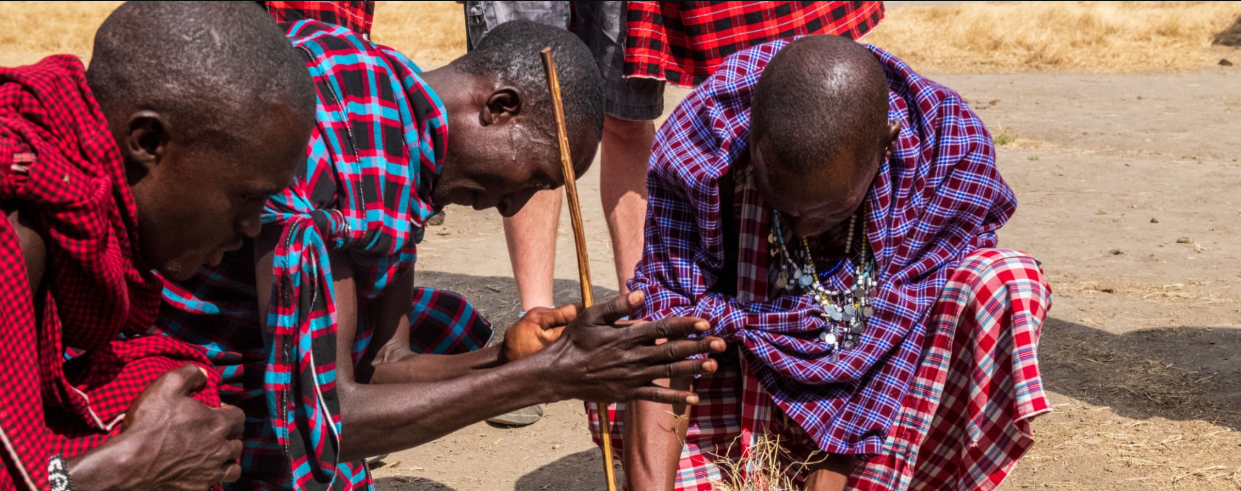How to Respectfully Visit a Maasai Village on Your Safari
Respect Maasai Traditions, A safari in East Africa is an unforgettable experience, offering breathtaking landscapes, diverse wildlife, and rich cultural encounters. Among the most iconic cultural experiences is visiting a Maasai village, where you can learn about the traditions, customs, and way of life of the Maasai people—one of Africa’s most famous indigenous communities.
However, tourism can sometimes exploit or misrepresent indigenous cultures if not approached with respect and sensitivity. To ensure your visit is ethical, meaningful, and beneficial to the Maasai community, it’s essential to follow certain guidelines. This article will explore how you can respectfully visit a Maasai village on your safari while fostering mutual understanding and supporting sustainable tourism.
1. Understanding the Respect Maasai Traditions
Before visiting a Maasai village, it’s important to learn about their history, culture, and current challenges.
Who Are the Maasai?
The Maasai are a semi-nomadic pastoralist community primarily living in Kenya and Tanzania. Known for their distinctive red shukas (clothing), intricate beadwork, and jumping dances (adumu), they have preserved much of their traditional lifestyle despite modern pressures.
Cultural Significance
-
Cattle: Central to their livelihood and culture.
-
Warrior Tradition: Young men (morans) undergo rites of passage.
-
Beadwork: Each color and pattern has symbolic meaning.
-
Community Structure: Decisions are made by elders in a communal setting.
Challenges They Face
-
Land loss due to conservation policies and privatization.
-
Climate change affecting livestock and water sources.
-
Exploitative tourism practices that treat them as “photo opportunities.”
Understanding these aspects helps visitors approach the community with empathy and respect.
2. Choosing an Ethical and Respect Maasai Traditions Village Visit
Not all Maasai village tours are created equal. Some are staged purely for tourists, while others are authentic experiences that benefit the community. Here’s how to choose responsibly:
Look for Community-Based Tourism
-
Village Stays vs. Day Visits: Some lodges partner with Maasai villages to offer overnight stays, which provide deeper cultural immersion and direct economic benefits.
-
Avoid “Human Zoos”: Some tours exploit the Maasai by treating them as exhibits. Instead, seek experiences where the community has control over the visit.
Ask the Right Questions Before Booking
-
Is the village visit initiated and managed by the Maasai?
-
Does the tour operator have a fair revenue-sharing agreement?
-
Are photography rules clearly explained and respected?
Recommended Ethical Tour Operators
-
Maasai Association (Kenya) – Supports education and cultural preservation.
-
Samburu & Maasai Cultural Tours (Kenya/Tanzania) – Focuses on authentic exchanges.
-
Local NGOs & Fair-Trade Lodges – Often collaborate with Maasai guides.

3. Preparing for Your Visit to Respect Maasai Traditions
Dress Respectfully
The Maasai are modest people. Avoid:
-
Revealing clothing (short shorts, tank tops).
-
Military-style attire (considered offensive in some cultures).
Instead, wear: -
Neutral or earthy tones (bright colors may be reserved for ceremonies).
-
Long pants or skirts and covered shoulders.
Bring Meaningful Gifts (If Appropriate)
While not mandatory, some villages appreciate useful contributions:
-
School supplies (notebooks, pens, books).
-
Medical supplies (bandages, antiseptics).
-
Sustainable tools (water filters, solar lamps).
Avoid: -
Handing out candy or money directly to children (disrupts local norms).
-
Giving inappropriate items (e.g., alcohol unless culturally accepted).
Learn Basic Maasai Phrases
A little effort goes a long way:
-
“Supa” (Hello – informal)
-
“Ashe oleng” (Thank you very much)
-
“Eserian” (Goodbye)
4. During Your Visit: Etiquette & Respectful Behavior
Follow the Elders’ Lead
-
Wait to be greeted before speaking.
-
Ask permission before taking photos (some rituals are sacred).
-
Avoid interrupting or correcting their explanations.
Participate Humbly
If invited to join a dance or activity:
-
Observe first to understand the context.
-
Follow instructions rather than mimicking inaccurately.
-
Avoid treating traditions as “performances.”
Photography Ethics
-
Always ask before photographing individuals.
-
No close-ups without consent (some believe cameras steal souls).
-
Avoid intrusive shots (e.g., inside homes without permission).
-
Consider buying their beadwork instead of just taking photos.
Economic Fairness
-
Pay the requested fee (many villages charge a small tourism fee).
-
Buy directly from artisans (avoid middlemen who underpay).
-
Tip guides fairly (if a guide accompanies you).
5. After Your Visit: Supporting the Maasai Long-Term
Spread Awareness Responsibly
-
Share your experience in a way that honors their dignity.
-
Avoid exoticizing or stereotyping them in social media posts.
Support Maasai-Led Initiatives
-
Donate to Maasai education programs (e.g., Maasai Girls Education Fund).
-
Purchase fair-trade Maasai crafts online (e.g., through ethical marketplaces).
Advocate for Ethical Tourism
-
Recommend responsible tour operators to fellow travelers.
-
Call out exploitative practices when you see them.
Visiting a Maasai village can be one of the most enriching parts of your safari—if done with respect, humility, and a genuine desire to learn. By choosing ethical tours, engaging thoughtfully, and supporting the community beyond your visit, you contribute to sustainable tourism that benefits both travelers and the Maasai people.
Remember, cultural exchange should be a two-way street: you gain insight into their world, while they retain autonomy over how their traditions are shared. With the right approach, your visit can be a meaningful step toward mutual understanding and respect.









